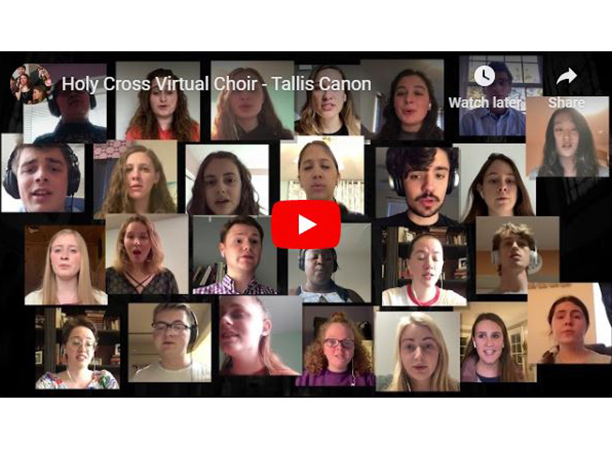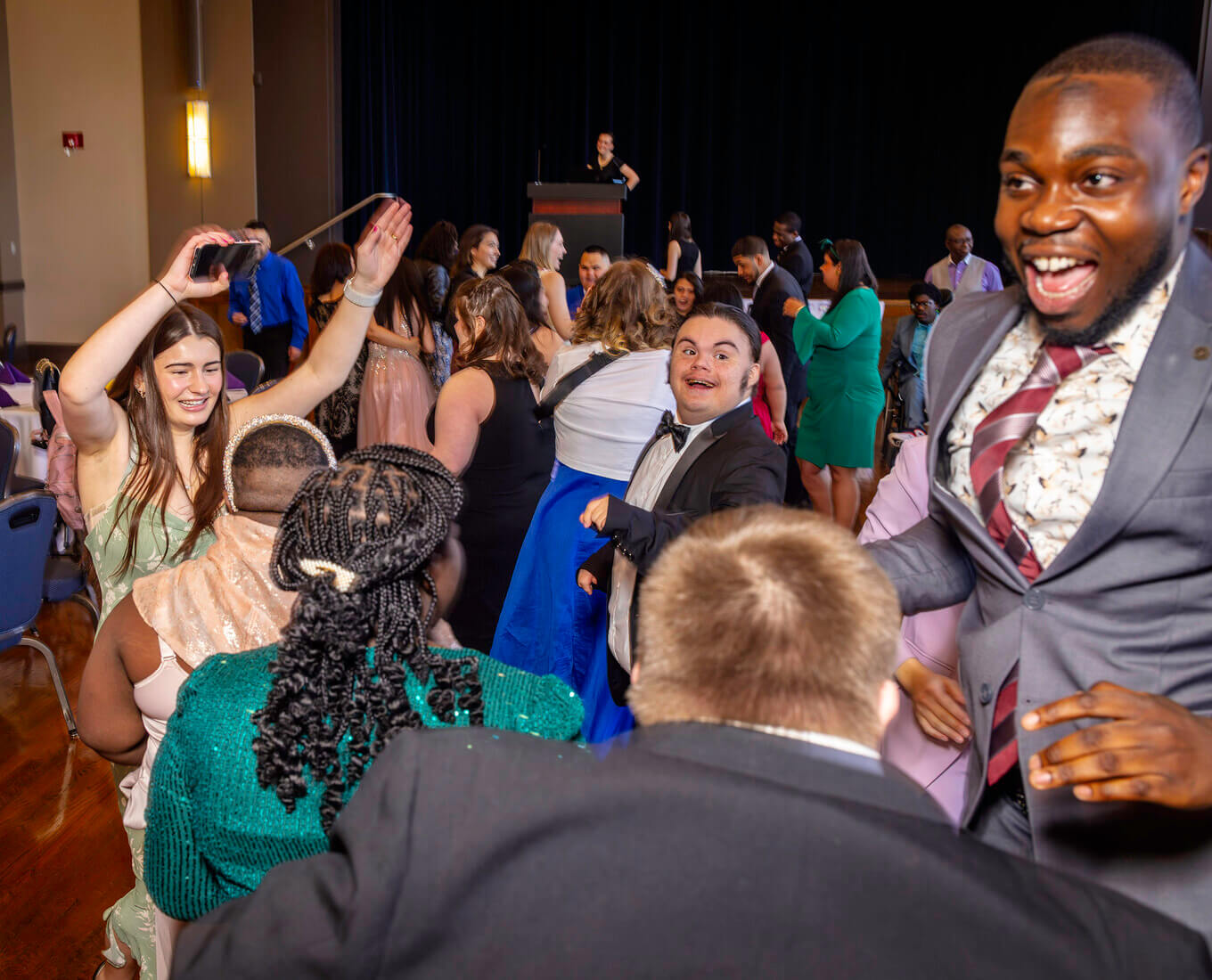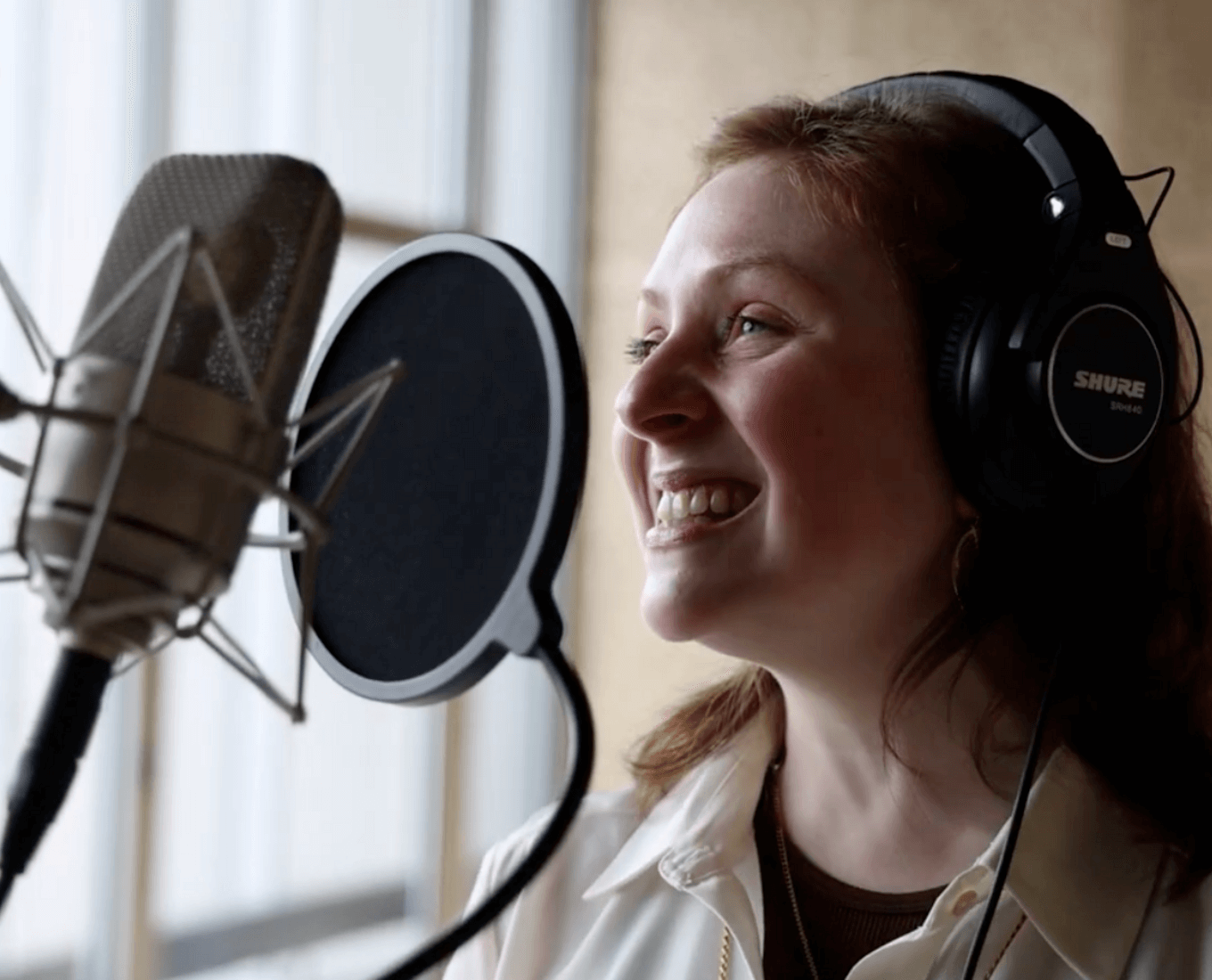[embed]https://www.youtube.com/watch?time_continue=21&v=GN68m3aXR-g&feature=emb_title[/embed]
As faculty members across the College worked to transition their courses to a distance-learning format this semester, one of the many logistical challenges to tackle was the annual Academic Conference, where students present the results of their independent work in the performing and visual arts, social sciences, humanities and natural sciences. How could a multi-day celebration of student work, filled with presentations, performances, poster sessions and engaging dialogue, move to an online format?
"It was an amazing effort on the part of students and their faculty mentors, many of whom were learning new technology skills with the guidance of our superb Education Technology team," said Danuta Bukatko, professor of psychology and one of the organizers of the virtual Academic Conference. "When we realized the conference could not take its traditional form, we decided it was still important to acknowledge in some way the rigorous scholarly work conducted by so many of our students over the past several months. Because of the challenges of these times, not all students doing independent projects were able to participate this year, but the conference signals appreciation for what all of them did in contributing to the process of knowledge building. The response from the college community was very positive. In fact, there may be some features of the virtual conference we may want to keep next year!"
The virtual conference kicked off on Tuesday, April 21, with a live session with Las Cafeteras streamed online, which included musical demonstrations and conversation with the artists. Originally scheduled for a residency on campus in mid-March, Las Cafeteras worked with Arts Transcending Borders to connect with the campus community in a different medium that still showcased their use of storytelling through music to amplify the voices of the marginalized as a tool to promote community activism and social change.
On Wednesday, April 22, there was a full day of presentations by students from a variety of class years and disciplines; more than 20 departments and programs were represented. Sessions included a presentation by this year's Fenwick Scholar Matthew Pinder '20, "Stations of the Cross: A Non-Traditional Musical Passion," which gave insight into his research and composition and debuted some segments, via a piano performance, of his yearlong project to create a musical Passion for soloists and orchestra based on the Stations of the Cross. Many of the presentations also included live Q&A sessions with the presenters, giving attendees a chance to engage directly with the research presentation.
Ellen Perry, director of the College Honors Program, explained that flexibility in the face of COVID-19 underscored all of her students' presentations during the virtual Academic Conference. "There was a steep learning curve with technology," Perry said. Instead of giving practice presentations, students broke into groups and critiqued pre-recorded performances of their peers, incorporating critical feedback into their final products. "Most important, I think, is this: a number of students completed this work in the face of adversity--technological, personal, or family adversity. And they went ahead and did it anyway."
Adaptation to the new virtual conference wasn't limited to research presentations; for example, the College Choir debuted their performance—remotely recorded—of the Tallis Canon. Under the direction of Allegra Martin, director of College choirs, with rehearsal support and guidance from Matthew Jaskot, lecturer in the music department, and audio and visual production by Brian Saia, lecturer in the music department, the ensemble learned to perform as a group of soloists, each singing and recording their piece individually for the cumulative video that was produced, edited and mixed by Saia.
"One of the most important skills we teach in academia is that of communication, which can come in many forms," said Martin. "Musical performance is about communication and connection. We are connecting ourselves to the people who wrote the music and words, and we are reaching out to share that piece of expression with those around us. Figuring out new options for connection is particularly important right now, when we are all isolating to protect each other. I wanted to give the choir students a way to still make music and connect with each other, and I wanted them to have a chance to share their hard work with everyone else."
Academic Conference Goes Virtual in Response to Pandemic
A longtime staple of the Holy Cross experience, the forum for students to present research and independent work found success in leveraging technology
Read Time
3 Minutes


